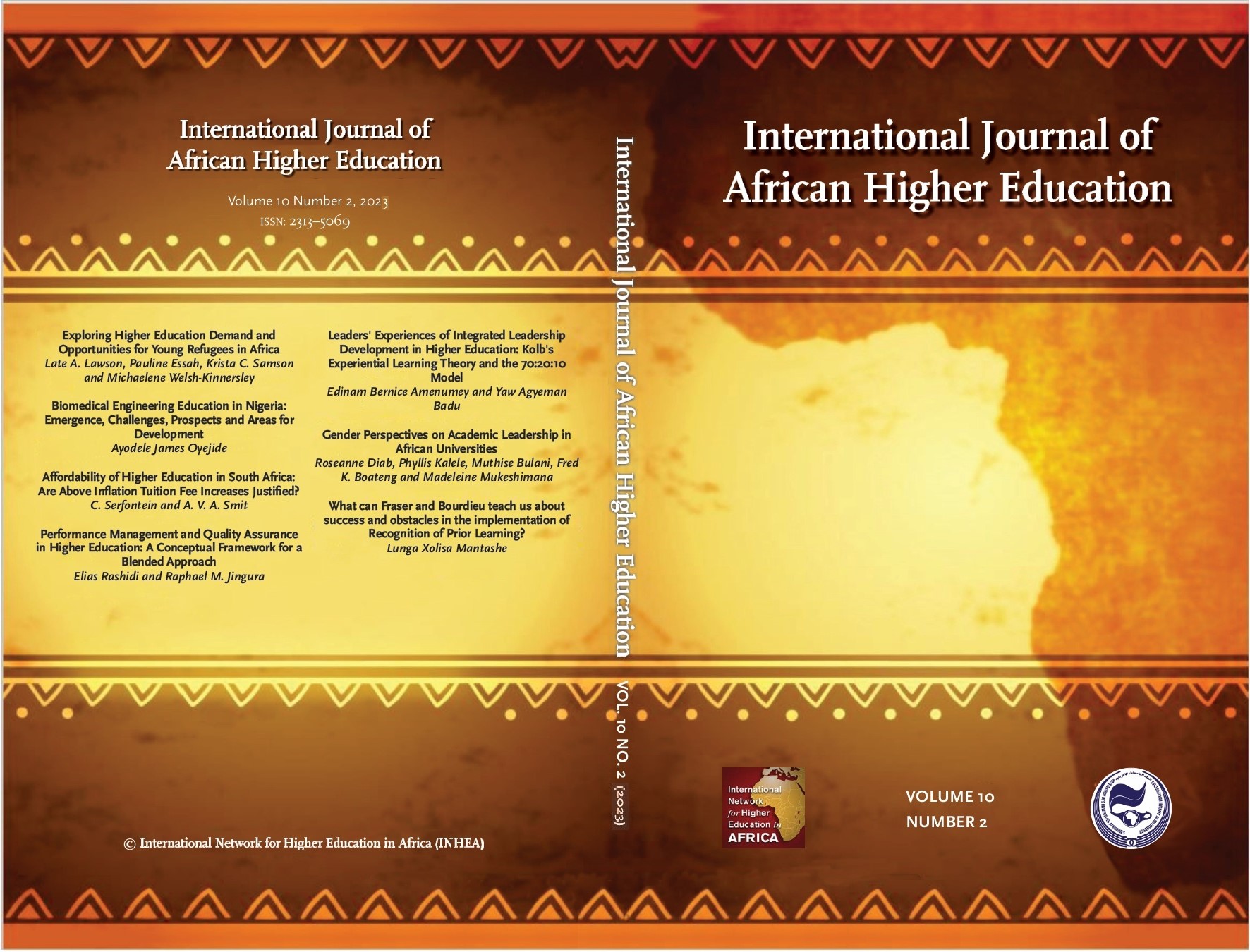Leaders’ Experiences of Integrated Leadership Development in Higher Education
Kolb’s Experiential Learning Theory and the 70:20:10 Model
DOI:
https://doi.org/10.6017/ijahe.v10i2.17617Keywords:
leader development, leadership development, experiential learning, higher educationAbstract
This article examines the perceptions of leaders of a public university in Ghana on how leader and leadership development perspectives are reflected in the institution’s leadership development (LD) practices. While there is an extensive body of literature on LD, further research is required on how leader and leadership development perspectives can be integrated. The study examined the applicability of the 70:20:10 model to leaders’ LD experiences and blended this model with Kolb’s experiential learning theory. A qualitative case study research approach was employed to explore the experiences of the institution’s leaders. Data were gathered using semi-structured interviews, document review and observation of a training session. The data were analysed using the thematic perspective of narrative analysis. The study found that the concepts in the 70:20:10 model, namely (1) on-the-job task performance (2) relationships in the workplace, and (3) training formed the basis of formal and informal sources of learning that propelled leaders in their development journeys. However, the university did not leverage these to consciously integrate the perspectives of leader and leadership development. It is thus recommended that LD should be consciously planned to ensure holistic learning from the three sources in the university setting.
Downloads
Published
How to Cite
Issue
Section
License
Copyright (c) 2024 Edinam Bernice Amenumey, Yaw Agyeman Badu

This work is licensed under a Creative Commons Attribution-NonCommercial-NoDerivatives 4.0 International License.

